Tinubu Pushes Siemens Deal for Fresh 4,000MW Power President Bola Ahmed Tinubu has directed a renewed acceleration of Nigeria’s power partnership with German engineering giant Siemens Energy, targeting the delivery of an additional 4,000 megawatts of electricity to the national grid within the next phase of the Presidential Power Initiative (PPI). Nigeria Set To Pioneer
Tinubu Pushes Siemens Deal for Fresh 4,000MW Power

President Bola Ahmed Tinubu has directed a renewed acceleration of Nigeria’s power partnership with German engineering giant Siemens Energy, targeting the delivery of an additional 4,000 megawatts of electricity to the national grid within the next phase of the Presidential Power Initiative (PPI).
Nigeria Set To Pioneer Africa’s First Digital Economy and E-Governance Law
The development marks a major move in the administration’s broader effort to stabilize Nigeria’s power sector, attract industrial investment, and drive economic growth through improved energy reliability. The President’s latest directive comes amid growing concern over epileptic electricity supply, rising tariff pressures, and the continued struggles of distribution and transmission networks across the country.
According to presidency sources, the renewed phase of the Siemens deal is designed to build on the initial agreements signed in 2019 under the Power Infrastructure Partnership between Nigeria and Germany. The original plan aimed to expand Nigeria’s grid capacity from around 5,000MW to 25,000MW in stages, focusing on rehabilitation of key transmission substations, expansion of distribution infrastructure, and the introduction of modern metering systems.
While progress under previous administrations was hampered by delays, foreign exchange constraints, and the COVID-19 pandemic, the Tinubu government is reportedly set to clear outstanding financial and administrative bottlenecks holding back full execution of the agreement.
In a meeting held at the State House in Abuja with the Minister of Power, Adebayo Adelabu, and top Siemens executives, President Tinubu emphasized that reliable electricity remains central to his Renewed Hope Agenda. He stressed that Nigeria’s economic recovery and industrialization cannot advance without a stable and affordable power base.
“Our citizens and industries deserve a consistent power supply that meets modern demands. We must fast-track the Siemens partnership and deliver measurable results within the shortest possible time,” the President reportedly told the delegation.
Sources at the meeting said Tinubu ordered the Ministry of Power and the Bureau of Public Enterprises (BPE) to finalize new financing models that would ensure transparency, local content participation, and accountability in project implementation. The administration is also exploring hybrid funding through public-private partnerships and concessional loans from European development institutions.
Focus on 4,000MW Boost
The fresh phase will prioritize the completion and commissioning of 10 critical transmission and distribution projects capable of injecting an extra 4,000MW into the grid. These include rehabilitation of key substations in Lagos, Abuja, Kano, Port Harcourt, and Benin; upgrading of transmission lines; and installation of digital control systems to reduce losses.
Officials disclosed that Siemens engineers are already working with the Transmission Company of Nigeria (TCN) and the Nigerian Electricity Regulatory Commission (NERC) to map priority corridors for the upgrade. The goal is to reduce system collapses, improve voltage stability, and enhance power evacuation capacity from generation plants.
Power Minister Adelabu, speaking after the meeting, confirmed that the new drive signals the beginning of a “practical implementation era” after years of bureaucratic inertia.
“We are moving from talk to tangible work. Nigerians will soon begin to see visible impact on the grid as Siemens delivers critical equipment already manufactured and ready for installation,” Adelabu said.
He added that some of the equipment—including transformers and circuit breakers—had been delivered to Nigeria in 2023 but had been awaiting customs clearance and deployment due to administrative bottlenecks.
Economic Implications
Analysts believe that achieving the targeted 4,000MW boost could have a major ripple effect on the economy. Reliable electricity is expected to cut production costs for manufacturers, reduce dependence on diesel generators, and attract new foreign investment in sectors such as mining, agriculture, and technology.
The Manufacturers Association of Nigeria (MAN) has repeatedly lamented that unreliable power adds up to 40 percent to production costs. The group welcomed Tinubu’s renewed engagement with Siemens as “a much-needed signal of seriousness.”
“If this partnership finally works, it will be a game-changer for industrial productivity and job creation,” said MAN’s Director-General, Segun Ajayi-Kadir.
Background and Future Outlook
The Siemens Power Initiative, initially launched during former President Muhammadu Buhari’s administration, was structured into three phases: first, to raise operational capacity to 7,000MW; second, to reach 11,000MW; and finally, to 25,000MW. However, only limited progress was achieved in the early stage, prompting calls for review and acceleration.
Germany’s Chancellor Olaf Scholz, during his 2023 visit to Nigeria, reaffirmed Berlin’s commitment to the project, noting that Siemens Energy sees Nigeria as a strategic hub for Africa’s energy transition. The renewed dialogue between both governments reportedly paved the way for Tinubu’s current directive.
Meanwhile, the Federal Government has also begun exploring renewable energy integration within the Siemens framework, particularly in solar generation for rural electrification and mini-grid systems. Insiders say discussions are ongoing to ensure that the upcoming power expansion aligns with Nigeria’s clean energy targets under the Paris Agreement.
In his concluding remarks at the Abuja meeting, President Tinubu reiterated that electricity is the “lifeblood of the economy” and pledged that his administration would not relent until Nigeria attains uninterrupted power supply.
“We have no excuse not to deliver power to our people. This is not just an infrastructure project—it is about jobs, education, security, and the quality of life of every Nigerian,” he said.
With this renewed commitment and a clear implementation roadmap, the Siemens deal may finally gain the momentum long promised. If successful, Nigeria could witness its first major leap in power generation capacity in over a decade—an outcome that may well define the Tinubu administration’s legacy in economic reform and energy development.



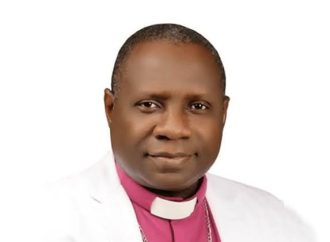
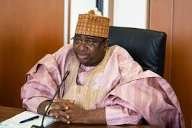
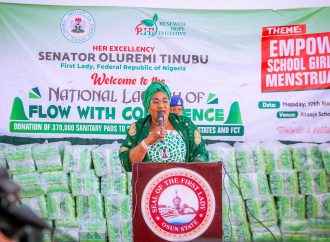
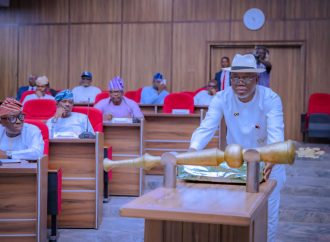





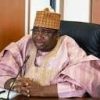
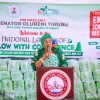





Leave a Comment
Your email address will not be published. Required fields are marked with *